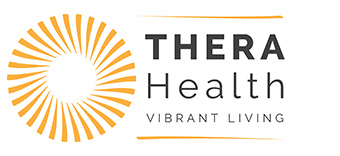What is DHA?
This important nutrient is considered paramount for the child-bearing years. It is a naturally occurring omega-3 fatty acid found in cold water fish such as tuna, salmon and mackerel as well as some organ meats. Because the body cannot produce omega-3s, women must consume them through the diet or through supplementation.
DHA is the predominant structural fatty acid in the brain and retina. It makes sense then that a developing foetus and a new born infant have particularly high requirements for DHA, depending on mum for their intake through the placenta during pregnancy and through breast milk after birth.
DHA is necessary for optimal visual and mental development plus the proper functioning of the nervous and immune systems. And research has shown that infants of mothers who consumed DHA during pregnancy have higher levels of DHA than infants whole mothers consumed little DHA. With adequate levels of DHA, a woman’s body has the building blocks required to ensure and protect your child’s healthy growth.
Oh, Mama…
A survey of recent mums and mums-to-be showed these results:
- 50% of the women surveyed did not know about the need for DHA, a critical nutrient for the healthy development of a baby
- 68% said their doctor did not tell them about DHA
- 72% said they had no idea how to get DHA into their diets
- 17% said they were aware that fish is a source of DHA
- 92% were interested in including DHA in the diet once they were advised of its benefits
Source: The Kelton Study sponsored by the Society for Women’s Health Research located in Washington DC.
Scientific Research Backs DHA during Pregnancy
Take a look at these findings:
- Maternal DHA supplementation resulted in improved eye-hand coordination at 2.5 years of age and improved attention skills at 5 years.
- Infants whose mothers had higher blood DHA levels showed better sleep patterns
- Children of women who took cod liver oil during pregnancy and while nursing had higher IQs at age 4 than children of the mothers that received a placebo
- Mothers who supplement with fish oils are more likely to give birth to full term babies and have healthier birth weights
- When mothers took cod liver oil during pregnancy, their offspring had a lower risk of diabetes
Source: omega-research.com
Who Needs DHA? Women of All Ages!
Women who want to conceive: Because it can take time for the body to build up this important nutrient, consider increasing your omega-3 intake as soon as you are planning to conceive. Multiple pregnancies, especially those that are close together, also deplete the mother’s store of omega-3s.
Women who are pregnant: Keeping levels of DHA sufficient during the entire pregnancy is important. The largest amount of brain development takes place in the third trimester meaning DHA is transferred from mother to baby at a high rate.
Women who are breastfeeding: The need for DHA remains critical for your new baby through 2 years of age as he or she continues to develop. After delivery, a mother’s level of DHA can remain low as breastfeeding transmits her reserves of DHA to the breast milk for baby.
Women of all ages: Although DHA is a critical component for the health of mum and bub, all women can benefit from this important fatty acid which offers positive support for heart health, stress management, immune functioning and balanced moods.
To ensure adequate amounts of DHA and EPA, a high quality third party tested fish oil that guarantees purity and freshness as well as potency is an ideal option. International recommendations suggest a minimum daily intake of 300 mg of DHA when pregnant and nursing.







Leave a Reply
Want to join the discussion?Feel free to contribute!